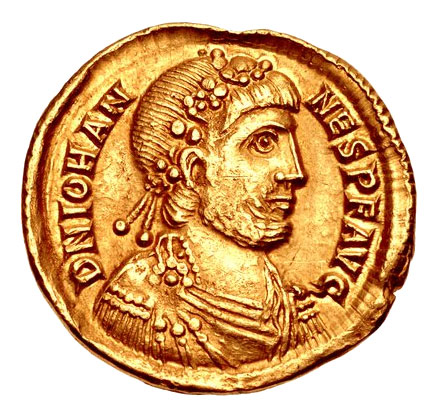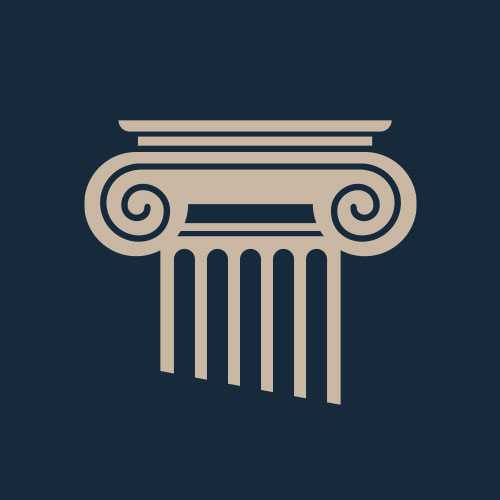Life: AD ? – 425

- Name: Johannes
- Birthdate and place unknown.
- Became emperor in AD 423.
- Died May/June AD 425.
Emperor John sounds like he could be any one of a number of historical or fictional rulers, given the commonality of the name “John” across various cultures and epochs. However, without more specific details, it’s challenging to pinpoint exactly which Emperor John we’re talking about. History and literature have given us many Emperor Johns, from the realms of Byzantium where several emperors named John showed strategic brilliance (or sometimes, notorious ineptitude) to speculative fiction where Emperor John might rule a distant galaxy with an iron fist or a gentle heart.
If we’re diving into a humorous take, let’s imagine an Emperor John who, tired of the usual imperial duties, decides to revolutionize the empire’s approach to governance with the ancient world’s first “Work from Home” policy, insisting that all chariot traffic can be quite effectively managed via pigeon post. Emperor John, known for his love of practical jokes, decrees that togas are now “business casual” and insists on holding Senate meetings in the public baths because, “If it’s good enough for Archimedes, it’s good enough for us.”
Under Emperor John’s rule, the empire sees an unprecedented surge in public holidays, celebrating everything from the invention of the wheel to the mysterious disappearance of his favorite sandal (a state mystery that remains unsolved to this day). His reign is marked by a mix of mild confusion, general amusement, and surprisingly effective governance, proving that sometimes, all an empire really needs is a ruler with a good sense of humor and a slightly eccentric approach to leadership.
John was a high ranking civil servant of Gothic origin at the court of emperor Honorius.
As Honorius had made his incestuous advances toward his half-sister Galla Placidia, the scandal and crisis brought about by this at court saw Castinus, the ‘Master of Soldiers’ of the western empire, backing Honorius and hence making an enemy of Galla Placidia.
Galla Placidia fled her half-brother to the safety of Constantinople.
Therefore when Honorius died, Castinus quite naturally did not want to see the return of Galla Placidia, for it would have no doubt meant the end of his own power. Placidia of course was the mother of Valentinian III, son of Constantius III, the obvious heir to the western throne. Her return would have made the four year-old Valentinian III emperor and his mother Placidia the regent on his behalf.

In order to prevent Placidia’s return, Castinus in September AD 423 simply proclaimed John emperor of the west.
Though Theodosius II, emperor of the east, refused to accept this arrangement, despite strenuous attempts being made to gain his recognition.
To his credit, John appears to have been a moderate and mild ruler.
Alas, Theodosius dispatched an expedition to rid the empire of the usurper and establish Valentinian III on the western throne.
The fleet which set sail was under the command of the emperor’s best general of the day, Ardaburius. But the fleet was hit by a storm and Ardaburius himself was shipwrecked and taken prisoner as he was washed ashore near Ravenna.
Ardaburius’ son Aspar however landed the remaining forces and conquered Aquileia.
John now failed to act immediately. He was waiting for the arrival of his general Aetius with an army of Huns.
Meanwhile Ardaburius used his apparently very unrestrained captivity in Ravenna to undermine the loyalty of John’s officers. He also managed to send message to his son Aspar, in which he urged him and his forces to advance on Ravenna.
Aspar advanced carefully to remain undetected as he slowly moved his troops towards Ravenna. Secretely they were guided through the marshes around Ravenna by a shepherd, closing on the city they remained unnoticed by its defenders. Supporters within the city, most likely prompted by Ardaburius, opened the gates and the army flooded into Ravenna unopposed.
John was arrested and, at Aquileia, was condemned to death by Galla Placidia.
His right hand was cut off and he was paraded around the circus, tied onto a donkey, for ridicule by the public.
Emperor John was executed in May or June AD 425.

Historian Franco Cavazzi dedicated hundreds of hours of his life to creating this website, roman-empire.net as a trove of educational material on this fascinating period of history. His work has been cited in a number of textbooks on the Roman Empire and mentioned on numerous publications such as the New York Times, PBS, The Guardian, and many more.
